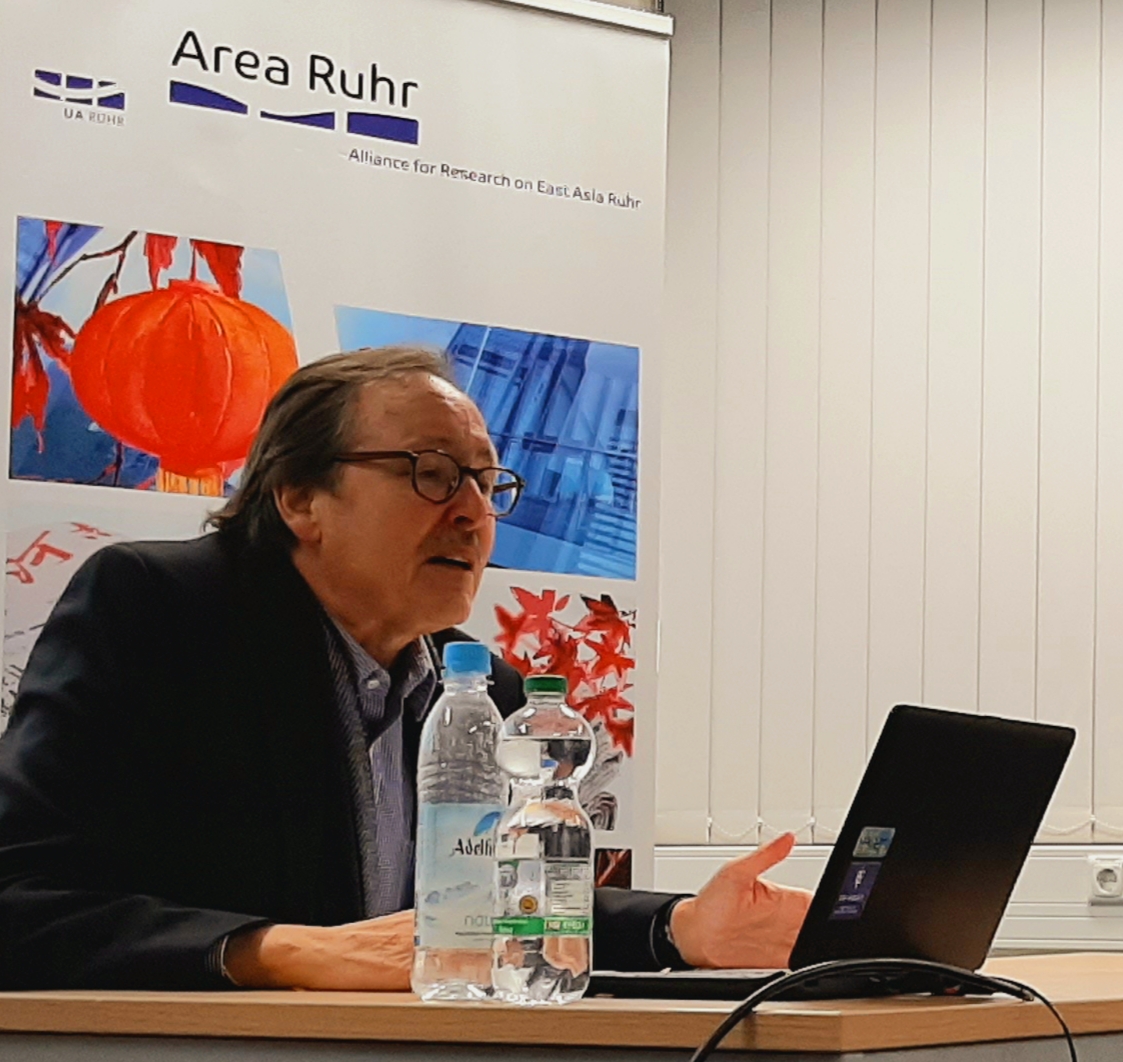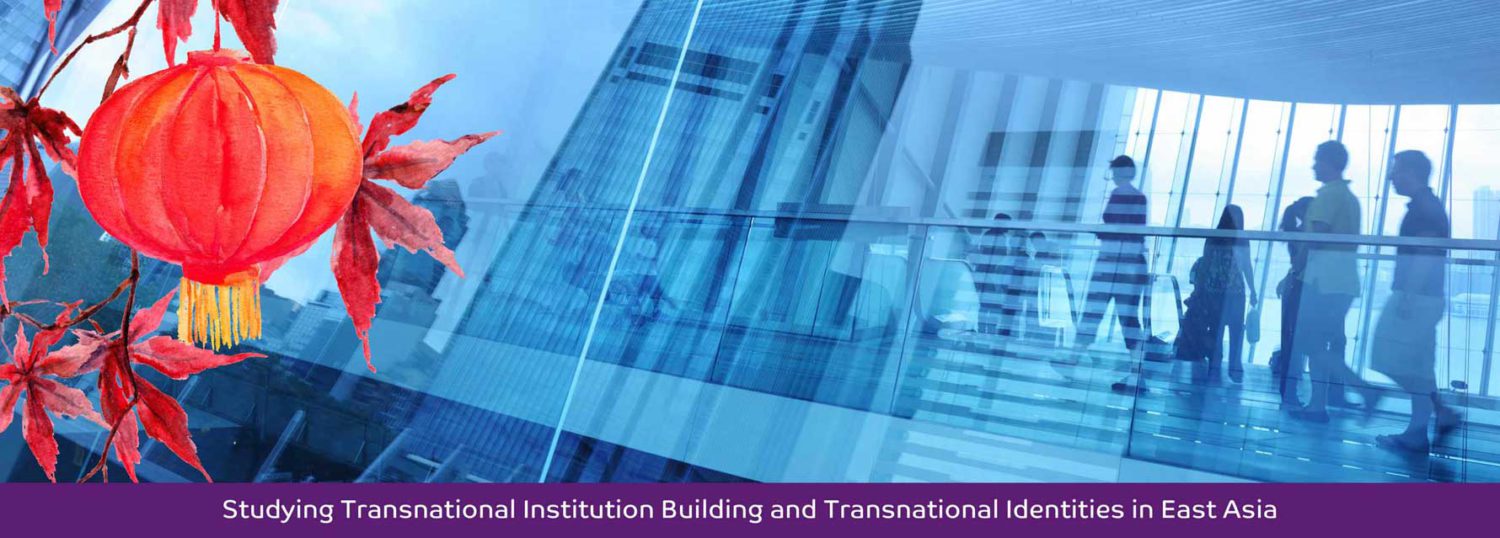 CONTEMPLATION
CONTEMPLATION
Prof. Mark R. Mullins, Professor of Japanese Studies and Director of the Japan Studies Centre at the University of Auckland, presented his research on “Neonationalism, Japanese Religions, and the Politics of Restoration” on Dec. 9, 2019, as part of AREA Ruhr’s lecture series.
In his presentation, Prof. Mullins elaborated on the decades long efforts of the Liberal Democratic Party (LDP) and the Association of Shintō Shrines (Jinja Honchō) to “recover” or “restore” what was destroyed by the process of imperialist secularization during the Allied Occupation of Japan.
As Prof. Mullins explained, LDP Diet members and prime ministers have increased their support for the political agenda of Jinja Honchō since the disaster years (1995/2011), including legislation to restore patriotic education, promotion of Yasukuni Shrine, and constitutional revision. Since 1997, Nippon Kaigi (Japan Conference) has become an important new member of this religio-political coalition and supporter of the restorationist movement. Both religious and secular groups have emerged in opposition to these neonationalistic initiatives in an attempt to preserve the postwar gains in democratic institutions and prevent the erosion of individual rights.
LECTURE
Neo-Nationalism, Japanese Religions, and Restorationist Politics in Contemporary Japan | Prof. Mark Mullins PhD (University of Auckland)
Over the past half-century, the Liberal Democratic Party (LDP) and the Association of Shintō Shrines (Jinja Honchō) have been engaged in collaborative efforts to “recover” or “restore” what was destroyed by the process of imperialist secularization during the Allied Occupation of Japan. Since the disaster years (1995/2011), the religio-political coalition has grown to include the Japan Conference (Nippon Kaigi), established in 1997, which has mobilized a broader base of support from other organized religions, including established Buddhist institutions and various New Religions. Over the past two decades, LDP Diet members and prime ministers have increased their support for their shared political agenda, including legislation to restore patriotic education, promotion of Yasukuni Shrine, and constitutional revision. Both religious and secular groups have emerged in opposition to these neonationalistic initiatives in an attempt to preserve the postwar gains in democratic institutions and prevent the erosion of individual rights.
CV
Mark R. Mullins is Professor of Japanese Studies & Religious Studies, and Director of the Japan Studies Centre, University of Auckland. Prior to this appointment, he taught in Japan for twenty-seven years at Shikoku Gakuin University, Meiji Gakuin University, and Sophia University. He is the author and co-editor of a number of works including Religion and Society in Modern Japan (1993), Christianity Made in Japan: A Study of Indigenous Movements (1998), Religion and Social Crisis in Japan (2001), and Disasters and Social Crisis in Contemporary Japan (2016).
Venue
Duisburg, Building SG, Room SG 183, Geibelstraße 41
Date
Monday | 09 December 2019 | 4.15 – 5.45 pm
Please register with kerstin.lukner@area-ruhr.de by 6 December.

